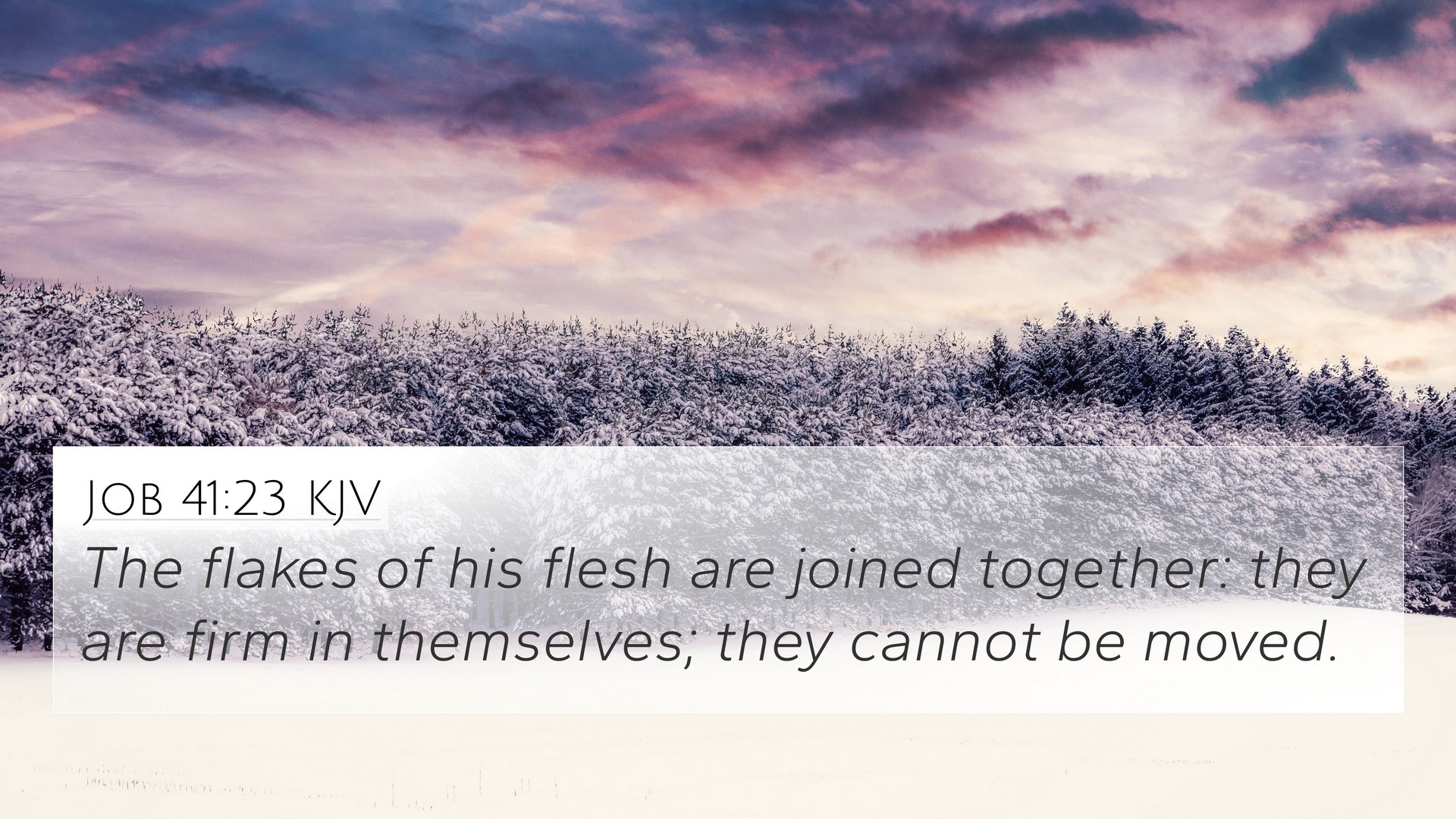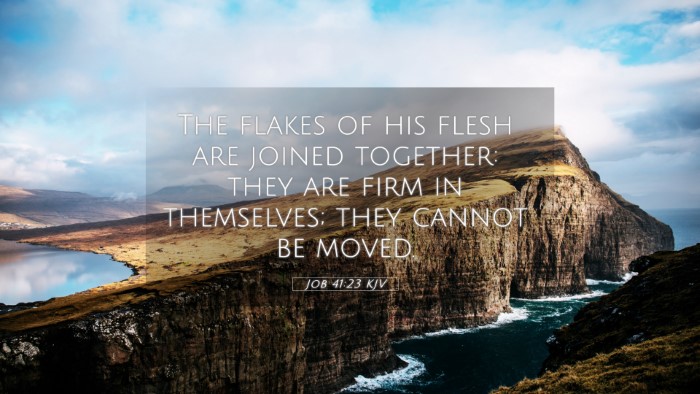Understanding Job 41:23
This verse is part of a poetic dialogue where God describes the mighty creature, Leviathan, emphasizing its strength and unapproachability. Job 41:23 states:
"The flakes of his flesh are joined together: they are firm in themselves; they cannot be moved."
Meaning and Interpretation
The essence of this passage centers around the depiction of Leviathan as a formidable entity of God's creation, symbolizing chaos and unrestrained power. Through various public domain commentaries, we uncover the depth of meaning in Job 41:23.
Insights from Matthew Henry
Henry emphasizes the invincible nature of Leviathan, describing the creature’s tough skin and impenetrable nature. This serves to illustrate not just the strength of the creature but also God’s power in its creation. Henry indicates that this portrayal is not simply about physical attributes but also an acknowledgment of God’s authority over wild, uncontrollable forces.
Understanding from Albert Barnes
Barnes interprets this verse as an affirmation of God's power demonstrated through the creation of Leviathan. He notes that the description highlights the creature’s impenetrable flesh, symbolizing an overall sense of strength and devastation. Barnes also suggests that this reflects on humanity's limitations in attempting to govern or control beings of such might.
Adam Clarke's Commentary
Clarke comments on the robust nature of Leviathan's skin, which is poetically described as being "firm" and "joined together." He connects this imagery to the idea of God’s sovereignty, implying that if God created such a creature, then it serves as a testament to His unmatched power and wisdom.
Thematic Connections
Job 41:23 not only stands alone but also connects to several other scriptures, enriching the understanding of God’s sovereignty and power:
- Psalm 104:26 - "There go the ships: there is that leviathan, whom thou hast made to play therein."
- Isaiah 27:1 - "In that day the LORD with his sore and great and strong sword shall punish leviathan the piercing serpent, even leviathan that crooked serpent; and he shall slay the dragon that is in the sea."
- Revelation 13:1 - "And I stood upon the sand of the sea, and saw a beast rise up out of the sea, having seven heads and ten horns."
- Job 40:15-24 - Description of Behemoth, another symbol of strength.
- Psalms 74:14 - "Thou breakest the heads of leviathan in pieces."
- Jeremiah 51:34 - "Nebuchadnezzar the king of Babylon hath devoured me, he hath crushed me..." referring to the power of nations.
- Matthew 8:26 - Christ's power over nature, demonstrating authority similar to that of God towards Leviathan.
Cross-Referencing Biblical Texts
To deepen the understanding of Job 41:23, employing tools for Bible cross-referencing can be immensely beneficial. This involves:
- Using a Bible Concordance: Helps locate themes and discussions related to Leviathan.
- Bible Cross-Reference Guide: Offers insights into diverse scriptures that echo the themes of God’s sovereignty and power.
- Cross-Reference Bible Study: A method to glean deeper insights and create thematic connections across different books of the Bible.
Practical Applications
Job 41:23 teaches us about the grandeur of God’s creation and the mystery of His works. In a practical sense, this understanding encourages humility in acknowledging God’s power over all creation. It compels us to recognize our limitations and to trust in God’s sovereignty amidst the chaos of our lives.
Conclusion
Reflecting on the grandeur of God through Job 41:23 invites a broader perspective on scriptures. By considering connections between Bible verses, believers can appreciate the holistic nature of God's word and grow deeper in their faith journey. The insights from various commentaries enrich our understanding of the complexities of the Bible and its teachings regarding divine power and control.


